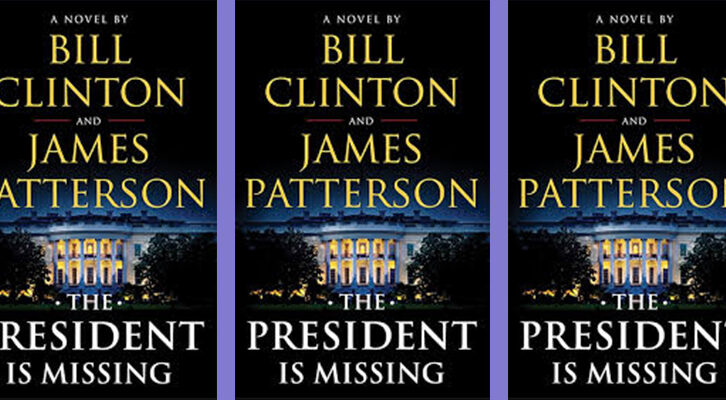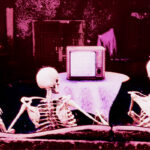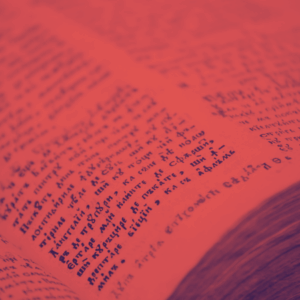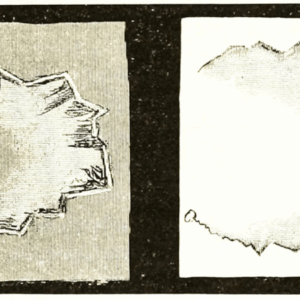
23 Books to Be Excited for in March
We Asked Lit Hub Contributors What Books They're Looking Forward To
Even though it is technically our job to be aware of (and read) all the best new books, forever, this can sometimes feel like a daunting proposition. So it is that we appeal to our friends and contributors (one and the same) for some insight into the titles they’re most excited about for March.

The Best Place on Earth: Stories, Ayelet Tsabari (Random House)
Tsabari’s debut collection of short stories was released last summer in an international edition, but will be sold for the first time in the US next month. The description of her stories merges identity and kinship, both familial and national. Born and raised in Israel in a Yemeni family, Tsabari served in the Israeli army and has traveled extensively in Asia and the West. I’m hopeful this collection continues the poignant and vibrant traditions of Jhumpa Lahiri, Amy Tan, and Aleksandar Hemon.
–Nandini Balial (Lit Hub contributor, Multimedia
Editor at Queen Mob’s Teahouse)

Insignificana, Dolan Morgan (Civil Coping Mechanisms)
I’ve been an admirer of Dolan Morgan’s fiction for a while, both as a reader and as an editor—we’ve published two of his short stories at Vol.1 Brooklyn. So I’m eager to read his new collection Insignificana. Morgan’s short fiction blends the unconventional structures of Steven Millhauser’s short fiction with a gripping sensibility that wouldn’t have been out of place on a mid-90s Touch & Go release. This is his second collection of it, and I am eager to have my narrative perceptions once again reshaped.
–Tobias Carroll (Lit Hub contributor,
managing editor at Vol. 1 Brooklyn)

Something Will Happen, You’ll See, Christos Ikonomou (Archipelago)*
An unbelievable whoosh of impassioned, yet spare, writing about the economic troubles in Greece—told through short stories—that could be about the capitalistic struggle of the free market anywhere. One need only pick a city of choice for it to read true of that place.
–Lucy Kogler (Lit Hub columnist,
Manager of Talking Leaves… Books)
*This title was argued over by two other booksellers.

The Violet Hour: Great Writers at the End, Katie Roiphe (The Dial Press)
Just as she studied marriage via the relationships of several writers in Uncommon Arrangements, in The Violet Hour Katie Roiphe looks at the final days of Susan Sontag, Sigmund Freud, John Updike, Dylan Thomas, Maurice Sendak, and James Salter as a means to meditate on mortality. Roiphe’s previous book was the masterful In Praise of Messy Lives, one of the better essay collections of the last few years. Her writing is as incisive and sharp as it is ruminative, so with The Violet Hour she’s managed to make me almost giddily excited to read about death.
–Jonathan Russell Clark (Lit Hub staff writer, contributing
editor at The Northwest Review of Books)

The Oldest Boy: A Play in Three Ceremonies, Sarah Ruhl (Farrar, Straus and Giroux)
Sarah Ruhl has to be one of the most interesting playwrights working in America right now. Her previous plays include one about vibrators used to cure hysteria in the early 20th century; the love affair between Elizabeth Bishop and Robert Lowell (told through correspondence); and a dynamite retelling of Eurydice. She’s just brilliant: I would watch any play of hers sight unseen. This new one sounds incredibly fascinating: it centers around a three-year-old boy believed to be the reincarnation of a Buddhist lama.
–Scott Esposito (Lit Hub contributor, editor at
The Quarterly Conversation)

Innocents and Others, Dana Spiotta
The novel I’m looking forward to is Dana Spiotta’s Innocents and Others. I loved Stone Arabia, which nails our fixation on fame, our inarticulate failings at love, our collective over-saturation with images of suffering. I’ll always remember the ironic motto of the never famous 50-year-old rocker’s aside to his sister: “Self curate or disappear.’’ Innocents and Others follows two filmmakers, girlhood friends, who take different paths (commercial, indie) and gives a new take on phone sex. Spiotta mixes fact and fiction (Orson Welles, Kent State) in original ways; the texture of her writing is gorgeous, and she’s full of surprises.
–Jane Ciabattari (Lit Hub columnist,
National Book Critics Circle VP)

The Passenger, Lisa Lutz (Simon & Schuster)
If your idea of fun involves a dark, twisty noir about a woman on the lam—stealing cars, dying her hair in seedy motel rooms, and constantly changing her name—Lisa Lutz’s The Passenger is the book you need. Lutz’s turn at the road novel raises all kinds of vexing questions about who we are and who we belong to as her heroine tries to evade her shadowy past.
–Lisa Levy (Lit Hub contributing editor)

Apostle: Travels Among the Tombs of the Twelve, Tom Bissell (Pantheon)
I have high hopes for Tom Bissell’s new book, Apostle: Travels Among the Tombs of the Twelve. In each of his past books, Bissell has displayed an enviably nimble mind. He wields his intelligence and his knowledge with such charming nonchalance, with such shrugging humor, that his insights pack that much more wallop. (After all, it’s the punch you don’t see coming that floors you.)
–Oscar Villalon (Lit Hub contributing editor,
managing editor at ZYZZYVA)

The Making of the American Essay, ed. John D’Agata (Graywolf Press)
I’m looking forward to The Making of the American Essay edited and introduced by John D’Agata. I’m a fan of D’Agata’s writing, his devotion to the essay form, and I’m inspired by his insistence that “the world provides nonfiction, and humans provide the rest” (as he writes in the introduction to this book). I’m excited to see that this anthology has work from a variety of writers and decades—from Herman Melville, W.E.B. Du Bois, Kathy Acker, and more.
–Chelsea Hodson (Lit Hub contributor, essayist/poet,
Catapult and Electric Literature Instructor)

Cool Characters: Irony in American Fiction, Lee Konstantinou (Harvard University Press)
Cool Characters: Irony in American Fiction is the newest work of LA Review of Books editor Lee Konstantinou. It maps the shifting contours of irony in postwar American literary culture by way of five classic archetypes: the hipster, the punk, the believer, the coolhunter, and the occupier. A crisply intelligent and very readable study of irony’s literary trajectory.
–Dustin Illingworth (Lit Hub staff writer, editor at
The Scofield and 3:AM Magazine)

Blackass, A. Igoni Barrett (Graywolf Press)
I love a comic novel out for blood, so the book I’m most looking forward to in March is A. Igoni Barrett’s satire, Blackass. From what I’ve seen so far, it looks to pull off one of my favorite tricks: mobilizing postmodern trappings towards something much more profound than nihilism.
–Jess Bergman (Lit Hub assistant editor)

Heads: A Biography of Psychadelic America, Jesse Jarnow (Da Capo Press)
Jesse Jarnow’s Heads explores the psychedelic culture that surfaced in the 1960s and was carried on by the Grateful Dead. Really. Just writing that sentence would normally make me feel a bit weird and encroach upon everything learned during my punk rock upbringing, but Jarnow goes to great lengths to show just how important the band has been to culture beyond just a bunch of stoned hippies dancing in a circle. It’s a fascinating book.
–Jason Diamond (Lit Hub contributor,
founder and editor at Vol. 1 Brooklyn)

They and We Will Get into Trouble for This, Anna Moschovakis (Coffee House)
Once you’ve read any Moschovakis poetry book, you will be happily fated to read (and await) each new release by one of our most ardent and original poets. I haven’t read a word yet of this new book, but I won’t be waiting too long to devour every single formally challenging, thematically expansive piece.
–Adam Fitzgerald (Lit Hub poetry editor)

Horses, Horses, in the End the Light Remains Pure, Hideo Furukawa, trans. Doug Slaymaker with Akiko Takenaka (Columbia University Press)
Furukawa’s documentary-cum-novel is a response to the Fukushima nuclear disaster that disorients even as it coheres. Featuring fictional characters come to life and a ravaged landscape, Horses, Horses… is a profoundly unsettling take on our transience. (Translated by Doug Slaymaker with Akiko Takenaka.)
–Stephen Sparks (Lit Hub contributor, bookseller at Green Apple Books)

We Love You, Charlie Freeman, Kaitlyn Greenidge (Algonquin)
In We Love You, Charlie Freeman Greenidge takes on a charged subject, sending a suburban African-American family to communicate and bond with a sign-language proficient chimpanzee, and turns it into a compelling fable about the damage we do to our fellow humans. Don’t let its readability fool you; Greenidge’s idea-charged debut signals very strong work to come.
–Bethanne Patrick (Lit Hub contributing editor)

Baho!, Roland Rugero (Phoneme Media)
The first novel from Burundi translated into English seems to have biblical prose (as in this excerpt) and a plot that could be social comedy or political allegory, or both, or neither; in any case, I’m on board. (Translated by Chris Schaefer.)
–Aaron Bady (Lit Hub contributor)

Hold Still, Lynn Steger Strong (Liveright)
I never get tired of the variety to be found in Tolstoy’s dictum that “all happy families are alike; each unhappy family is unhappy in it’s own way,” and so I can’t wait to read this intimate, devastating drama of mothers and daughters (and Brooklyn).
–Emily Firetog (managing editor, Lit Hub)

Playing for the Devil’s Fire, Phillippe Diederich (Cinco Puntos Press)
I’m looking forward to picking up Playing for the Devil’s Fire, out on March 15. I admire the adventurousness of Cinco Puntos Press for marketing the book as “Young Adult,” even though the book will find and deserves a broader audience. Of course the book has the requisite teen narrator, but it’s also got decapitations, games of marbles, and luchadores. A good old coming-of-age story set in a little Mexican pueblo overrun by drug money and ultra-violence is just what YA needs. And given Diederich’s track record for exciting plots, sharp details, and caring for his characters, I have no reason to doubt this will be a damn good book.
–Ryan Rivas (Lit Hub contributor)

Locally Laid, Lucie B. Amundsen (Avery)
Don’t let the author’s humor fool you into taking this book lightly; she makes a nuanced plea to respect local farms and the animals that populate them. She struggles as a mid-sized farmer, and her trials and tribulations are not unlike the struggle of the American middle class. I’ll never look at an egg the same way again.
–Kerri Arsenault (Lit Hub columnist)

All the Lasting Things, David Hopson (Little A)
Benji Fisher, former child star from an 1980s sitcom, drunkenly stumbles through roles at the local theater. His father, a Pulitzer Prize-winning novelist, is battling Alzheimer’s. The Fisher family unravels in this tragic-comic tale.
–Nick Ripatrazone (Lit Hub contributor) 
A Body, Undone, Christina Crosby (NYU Press)
I’m looking forward to reading Christina Crosby’s A Body, Undone. Our bodies are weird, shifting things that we are simultaneously rooted in and looking at from the outside, trying to understand. What happens when your body as you know it is forever changed? Crosby was paralyzed after a bike accident, and this book is described as “a memoir that is a meditation on disability, metaphor, gender, sex, and love…”
–Michele Filgate (Lit Hub contributing editor)

Margaret the First, Danielle Dutton (Catapult)
As a publisher (Dorothy, A Publishing Project) Danielle Dutton has consistently shown uncanny taste and deep intelligence in choosing the work of others; as a writer, she wields both with ease and grace, delivering a perfect dagger of book: sharp, dark sentences, in and out quick.
–Jonny Diamond (editor, Lit Hub)

A Love of UIQ, Félix Guattari (Univocal Publishing)
I love Univocal, the “artisanal” publisher from Minneapolis, and I love them in spite of the fact that they use the word “artisanal” on their website’s ABOUT page (a word hipsters have made me hate). They publish these gorgeous, little books, mostly of philosophy, theory, and criticism, from authors like Nietzsche, Baudrillard, and Critchley. Their March publication, A Love of UIQ, may seem strange at first for them—a screenplay?—but it fits right in when you know that the author is Félix Guattari (best know for his collaborative works with Gilles Deleuze) and that it is a screenplay of an unmade film he calls “neither an autobiographical film or an essay film,” though, he admits, it does closely relate to his “conception of psychoanalysis.” It’s a science fiction story about a group of squatters who find intelligent life not on other planets out in space, but in the world of the infinitely small, the Universe of the Infra-Quark (the UIQ of the title), and more importantly it is a work of fiction which follows a long line of philosophers who attempt, to varying degrees of success, to wed their philosophical world view to the fictive worlds created in literature and the other arts. (Translated by Silvia Maglioni and Graeme Thomson.)
–Tyler Malone (Lit Hub contributing editor)



















